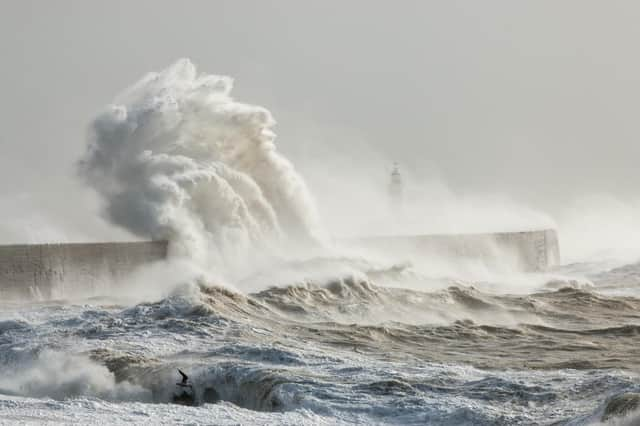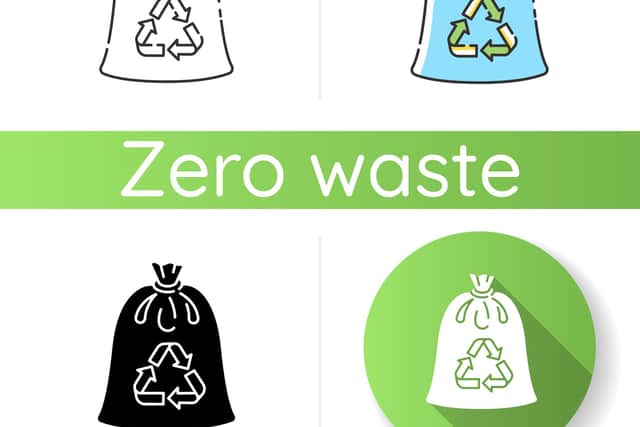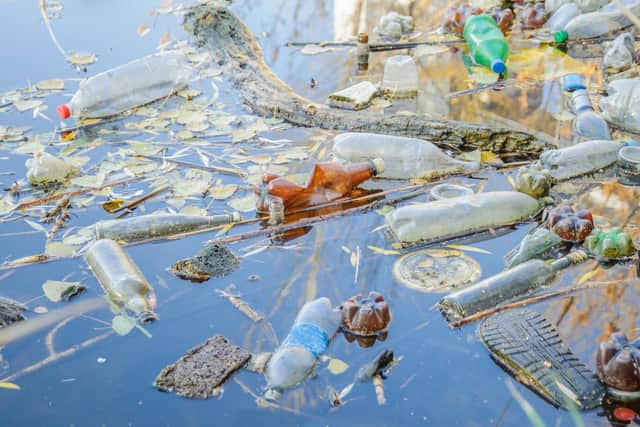Strong high winds, severe storms that signal winter’s here


Winds were clocked at over 100 miles an hour; hundreds of homes were flooded and many were left without power. It took months in some cases for river levels to return to normal and damage costs ran into the hundreds of millions of pounds with homeowners claiming on their insurance.
The worst of the weather does tend to come in January or February so it’s worth getting prepared with the basics such as candles and toilet roll.
Advertisement
Hide AdAdvertisement
Hide AdFirstly, if you have portable chargers, get them all charged up and keep them that way. At least if you have a power cut, you’re still connected to the outside world with your mobile and the kids can still play Candy Crush.


Next, stock up. The Beast from the East in 2018 left thousands of homes without power, in the event of a power cut or lines coming down in bad weather you want to make sure you have enough food you can eat – a freezer or fridge full isn’t much good if you don’t have the means or power to cook it. Think tinned goods you can heat on a gas hob if you have one. Non electric hobs are good for heating water for hot water bottles If you have a shaky hand, you can pour hot water into a jug or gravy boat first to reduce spills from the pan into your bottle. If you can boil water you can make soups, pasta and porridges. Make sure there’s plenty of cereal you can have with milk and room temperature foods like cereal bars, sandwiches, and wraps.
While you might want candles in the event of a power cut, Keep them away from anything flammable, don’t leave them unattended and always put them on a heat proof mat or plate. The London Fire Brigade have candle safty advice on their website which includes making sure candles are held firmly in heat-resistant holders and placed on a stable surface where they won’t be knocked over. They also suggest keeping them away from materials that might catch fire like curtains. Before the cold weather comes if you have anyone vulnerable in your home or anyone who relies on electricity for oxygen treatment or any medical equipment then make sure you’ve registered on the priority services register for getting power back on through your energy supplier or network operator.
There’s garden preparation you can make too. Remove any broken branches that could come down in a storm, make sure things like trampolines and bins are secured and can’t blow away, check your guttering is clear and make sure your car is parked where it’s safe and not at risk of falling debris damaging it.
Advertisement
Hide AdAdvertisement
Hide AdFinally, make sure you’ve got a deck of cards handy to keep the kids and adults amused. We are looking at a bumper year for storms here in the UK according to the Met Office but with a little preparation, they don’t have to be as disruptive as they might have been in the past.


Celebrity spot
United Nations Environment Program Goodwill Ambassador and among Oceans 11 actors Don Cheadle (photo: Getty Images) has for a long time been a climate campaigner.
The 58-year-old actor spoke once again about the environment.
He said: “I hope to use my celebrity to motivate people and contribute to moving our global society back from the brink."


Advertisement
Hide AdAdvertisement
Hide AdHe added: “I am surprised the environment is not at the top of the agenda. What is more important than good and clean air?”
Green swap
We all know about bags for life but why not swap bin liners for compostable biodegradable ones (photo: Adobe)? The same goes for dog poo bags, swapping regular ones for eco ones that’ll compost down to help the environment.
Reducing our planet’s pollution begins at home
Right now lots of concerned citizens are talking about things being dumped into our rivers and streams but some pollution in our waterways can come from our own homes.
While that might not sound great, the good news is that we’re in control of what we use and flush at home so we can make a difference.
Advertisement
Hide AdAdvertisement
Hide AdLots of us are great at recycling and trying to reduce our carbon footprints but how many of us think about our cleaning products when it comes to going green?
A lot of the things we flush down our toilets or wash down our drains can find their way into our waterways.
So here are some ideas to make your cleaning green and help your home as much as the brilliant waterways and seas around our coasts.
There are lots of homemade cleaners you can try, using basic store cupboard ingredients. This works out cheaper and better for the planet.
Advertisement
Hide AdAdvertisement
Hide AdEqual parts of water, vinegar and lemon rind, left to infuse for around a week will make a brilliant all-purpose cleaner for bathrooms and kitchens.
Many of us will remember our parents using vinegar and newspaper to clean windows and give them a sparkling shine. In fact, a lot of window cleaners still have vinegar in them today.
A bottle of vinegar can be as little as 29p compared to around £1 for the cheapest window cleaner.
Baking soda and warm water is great at cutting through grease and grime while vinegar, lemon juice and table salt cleans brass really well.
Advertisement
Hide AdAdvertisement
Hide AdIf you don’t fancy making your own, look out for eco labels.
It might be that you need to try a few different ones before you end up with one that does everything you need it to but persevere as there are some really good ones out there.
Get used to reading labels and avoid Triclosan synthetic fragrances and air fresheners, which are bad for you and the environment.
Limit the different types of cleaners you use, if you can get one multipurpose, that’ll be better than flushing lots of different types down the drains.
Advertisement
Hide AdAdvertisement
Hide AdLots of households across the UK have bleach, which is bad for the environment, waterways and is associated with ozone depletion.
Ask if you really need to use it and, if you're not yet ready to give bleach up completely, then perhaps use it only occasionally.
It’s also worth having a think about how often you clean your home.
While we’d all rather be reading a book or spending time with a loved one rather than scrubbing the bath, it may be that you can drop one clean a month and still have a sparkling house.
Advertisement
Hide AdAdvertisement
Hide AdWe’re after hygienic, not spotless, when it comes to cleaning.
Fact or fiction
The earth is losing more than a trillion tonnes of ice per year.
Fact.
Since the mid-1990s we’ve lost around 28 trillion tonnes of ice at either end of the globe, the equivalent of a sheet of ice that is 100 metres thick covering the entire world.